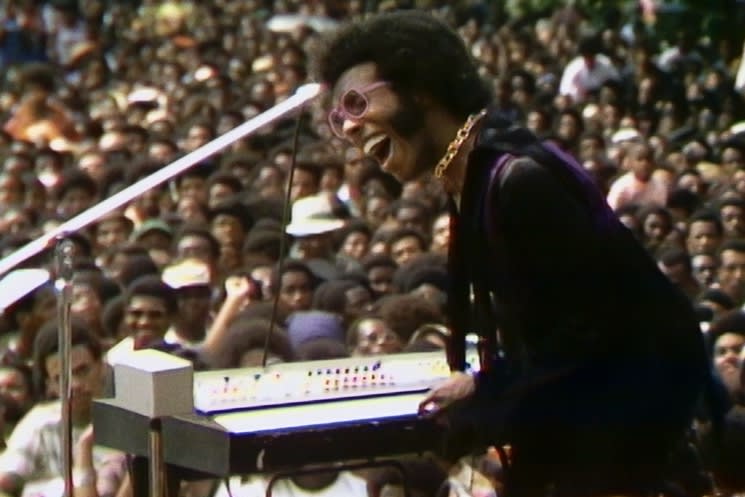In the summer of 1969, hundreds of thousands of people gathered in New York for a celebration of love, music and countercultural activism. The whole thing was captured on film, capturing the spirit of the late '60s along with some of its most beloved music stars.
Yes, I'm talking about Woodstock, but I'm also talking about the Harlem Cultural Festival — a series of concerts that ran between June and August in NYC's Mount Morris Park. The two events took place concurrently, just a couple hours' drive away.
But while Woodstock has been embraced as a pivotal moment in musical history, the Harlem Cultural Festival has been comparatively pushed to the side. The whole thing was filmed, but it's not until the Questlove-directed Summer of Soul (...or, When the Revolution Could Not Be Televised) that the tapes have come out and the whole event has been properly documented.
For viewers who might not have heard much about the Harlem Cultural Festival, Questlove hits the ground running by beginning Summer of Soul with a blistering performance from one of the event's biggest stars: a 19-year-old Stevie Wonder, who vamps vocally before performs a dazzling jazz drum solo. Immediately, audiences will think: wait, why hasn't this film been released before? One of the documentary's final sections grapples with how the Harlem Cultural Festival's erasure is part of a long-running pattern of Black erasure in white American history.
The two-hour documentary mixes electrifying performances — including Gladys Knight, Nina Simone, Mavis Staples, B.B. King, Sly and the Family Stone — with politically-minded glimpses of the era. This was four years after the murder of Malcolm X, and barely a year since the assassination of Martin Luther King Jr. One interview subject describes the crowd at the the Harlem Cultural Festival as being "radicalized" with "neo super-Blackness."
Questlove paints a portrait of a thriving Black community brought together through strife, depicting a Harlem that, despite high rates of poverty and drug addiction, is described in the film by a resident as "Camelot." As some interview subjects explain, it was around this time that the community embraced the word "Black" as a point of pride; "I am Black. I am beautiful. I am proud," Jesse Jackson proclaims, as the crowd echoes each line.
Musically, it's an incredible document of '60s soul, gospel and psychedelia. And just as importantly, it's a snapshot of a moment of political instability that feels sadly familiar to our current moment. But thanks to Questlove's loving celebration of this key event, the takeaway is ultimately hopeful rather than harrowing.
'Summer of Soul' Is a Political Snapshot Wrapped Up in a Concert Film
Directed by Questlove
Starring Stevie Wonder, Lin-Manuel Miranda, Chris Rock, Mavis Staples, Al Sharpton

BY Alex HudsonPublished Jun 28, 2021